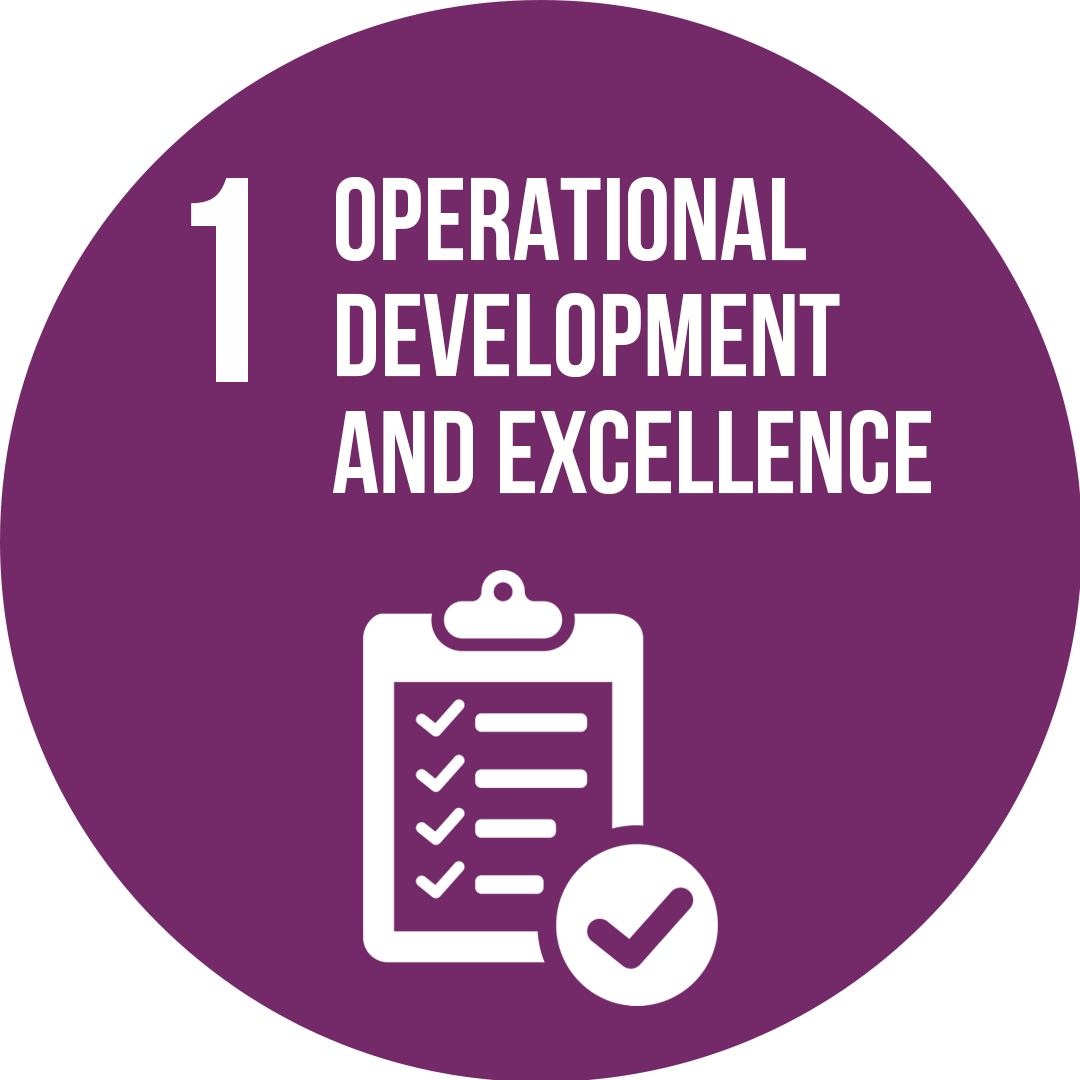MEETING DATE: 11/23/2021
DEPARTMENT: RESOURCE MANAGEMENT AGENCY
DEPT HEAD/DIRECTOR: Michael Chambless
AGENDA ITEM PREPARER: Celina Stotler
SBC DEPT FILE NUMBER: 142
SUBJECT:
RESOURCE MANAGEMENT AGENCY – M. CHAMBLESS, INTERIM RMA DIRECTOR
(To be heard at 9:00 AM or as soon thereafter as the matter may be heard) Hold a Public Hearing and introduce and waive the First Reading of the Countywide Edible Food Recovery Ordinance and direct staff to place the Ordinance on the consent calendar for adoption at the January 25, 2021 meeting for the establishment of an Edible Food Recovery Program consistent with Senate Bill 1383. Adopt a Memorandum of Understanding between the Integrated Waste Management Regional Agency Members for the establishment of an Edible Food Recovery Program consistent with Senate Bill 1383.
SBC FILE NUMBER: 142
ORDINANCE NO: 1038
AGENDA SECTION:
PUBLIC HEARING - Bottom
BACKGROUND/SUMMARY:
SB 1383 Background:
In September 2016, Governor Brown signed into law Senate Bill 1383 (SB 1383) establishing methane emissions reduction targets. Methane emissions result from the decomposition of organic waste in landfills and are a source of greenhouse gas (GHG) emissions. Senate Bill 1383 directs the Department of Resources Recycling & Recovery (CalRecycle) to adopt regulations and requirements to achieve state-wide goals including a goal to reduce organic waste disposal at landfills by 75 percent by the year 2025; and requires that not less than 20% of edible food that is currently disposed of be recovered for human consumption by 2025.
CalRecycle oversees a variety of programs and policy initiatives to reduce the amount of solid waste sent to landfills and to promote recycling within the State, including organic waste recycling under SB 1383 requirements. CalRecycle considers the adoption of an ordinance(s) one of the most important aspects of early compliance and urges jurisdictions to meet the State’s deadline under SB 1383 to avoid the high penalties associated with non-compliance.
To meet the state-wide goals of SB 1383 and its January 1, 2022 compliance implementation deadline, CalRecycle has established numerous organic waste disposal program requirements impacting municipal jurisdictions, generators, processors, and haulers. Some of the program requirements include:
o Providing organic waste collection service to all residents and businesses;
o Establishing an edible food recovery program that recovers edible food from the waste stream;
o Conducting outreach and education to all affected parties, including generators, haulers, facilities, edible food recovery organizations, and county and city departments;
o Procuring recycled organic waste products like compost, mulch, and renewable natural gas (RNG);
o Inspecting and enforcing compliance; and
o Maintaining accurate and timely records of compliance.
Under SB 1383, CalRecycle has the authority to financially penalize non-compliant jurisdictions up to $10,000 per day.
SB 1383 Rural Exemption for the San Benito County Integrated Waste Management Regional Agency
Per Section 18984.12 (c) of the SB 1383 regulations, a qualifying rural county may adopt a resolution exempting the county from specific SB 1383 requirements based upon findings as to the purpose of and need for the exemption. The San Benito County Integrated Waste Management Regional Agency members qualify for the exemption if the rural jurisdiction (the County) receives delegation authority to apply for the exemption on the Agency members’ behalf, which has previously been granted. On October 26, 2021, the Board of Supervisors approved and affirmed a resolution that allows the County as Lead Agency to apply for a rural exemption on behalf of the Regional Agency members for SB 1383.
The rural exemption, if granted by CalRecycle, would exempt the San Benito County Integrated Waste Management Regional Agency members from the mandatory organics collection requirements and other associated requirements, until December 31, 2026 or until San Benito County reaches a population of 70,000 (Per U.S. Census Bureau, 2019 population is 62,808). The rural exemption would not grant exemption to the San Benito County Integrated Waste Management Regional Agency members from all the requirements of the law. The following SB 1383 requirements will still apply for each Regional Agency member regardless of the rural exemption status:
o Education and Outreach – 14 CCR, Article 4, Sections 18985.1 through 18985.3
o Jurisdiction Edible Food Recovery Programs, Food Generators, and Food Recovery –14 CCR, Article 10, Sections 189991.1 through 18991.5
o Organic Waste Recycling Capacity Planning (Edible food capacity planning only) – Article 11, Section 18992.2
o Recycled Content Paper Procurement Requirements – 14 CCR, Article 12, Section 18993.3.
o Reporting – 14 CCR, Article 13, Sections 18993.1-18993.2
o Enforcement Requirements – Article 14, Sections 18995.1 through 18995.4
All of the above requirements are covered in the attached MOU, not including the Recycled Content Paper Procurement Requirements (Article 12, Section 18993.3.) as each Regional Agency member needs to implement this requirement independently. Each Regional Agency member will also be responsible for meeting CALGreen Building Standards and Model Water Efficient Landscape (MWELO) requirements (Article 8).
Memorandum of Understanding for Edible Food Recovery Program
An MOU between the Regional Agency members is necessary to outline the roles and responsibilities of each member agency for establishment of an edible food recovery program to recover leftover edible food from large commercial generators for human consumption, and to require specified generators to donate such food, and to adopt a mechanism for enforcing such requirements. The responsibilities of each member agency are outlined in the MOU.
County Responsibilities Per the MOU, the County will create and coordinate an edible food recovery program compliant with California Code of Regulations, Title 14, Division 7, Chapter 12 Short-Lived Climate Pollutants. For the edible food recovery program, the County will be responsible for the following:
1) Annually notifying commercial edible food generators of the program requirements
2) Annual inspection of applicable edible food generators
3) Reporting and recordkeeping
4) Estimating edible food recovery capacity (in consultation with the Cities)
5) Enforcement lead
City Responsibilities Per the MOU, the Cities will be responsible for the following:
1) Enter into this Memorandum of Understanding
2) Adopt and make part of their municipal codes an enforceable ordinance establishing an Edible Food Recovery program, including the specific provisions provided to the Cities by the County
3) Provide program related information to the County as requested
4) Be responsible for all other applicable SB 1383 requirements not designated to the County
5) Assist the County on any related issues requiring jurisdictional assistance, enforcement, or lead in resolving issue(s) related to complaints or noncompliance.
Edible Food Recovery Ordinance
Per the MOU, the County will develop and coordinate a standardized and uniform San Benito Countywide Edible Food Recovery Program consistent with and compliant to California Code of Regulations, Title 14, Division 7, Chapter 12 Short-Lived Climate Pollutants. The program will operate within San Juan Bautista’s and Hollister’s boundaries and will replace the need for San Juan Bautista and Hollister to create such a program on their own. This program will operate in the unincorporated areas of the county as well as the jurisdictions in the county agreeing to the MOU. The purpose of this ordinance is to comply with SB 1383 and reduce the amount of edible food going to landfill. In summary, the ordinance will include the following:
Commercial Edible Food Generators (Tier 1 and Tier 2) shall be required to but not limited to:
o Arrange to safely recover for human consumption the maximum amount of edible food that would otherwise be disposed.
o Enter in contract or written agreement with Food Recovery Organizations or Food Recovery Services for the collection of edible food that would otherwise be disposed or for the acceptance of edible foo that would otherwise be disposed that the commercial edible food generator self-hauls to the Food Recovery Organization or Service.
o Keep records
o Allow the Enforcement Agency to review records and reports upon request
Food Recovery Organizations and Services shall be required to but not limited to:
o Maintain applicable records and data related to Tier 1 and Tier 2 businesses for which they are in contract with or have a written agreement.
o Report total pounds of edible food recovered related to Tier 1 and Tier 2 businesses for which they are in contract with or have a written agreement.
o Provide information and consult with the Regional Agency members regarding existing, proposed, or expanded food recovery capacity
In summary, the ordinance inspection, investigation, and enforcement will include the following but not limited to:
o The County’s Enforcement Officer or its designated Enforcement Agency is authorized to conduct any inspection or investigation as is necessary and shall accept written complaints regarding an entity that may be potentially non-compliant
o Violation of any provision will be grounds of issuance of a Notice of Violation and assessment of an administrative citation and penalty by the County Enforcement Officer or its designated Enforcement Agency
o Enforcement actions are issuance of an administrative citation and assessment of a fine that may be enforced by the County, or designated enforcement agency
In order to comply with California Code of Regulations, Title 14, Division 7, Chapter 12 Short-Lived Climate Pollutants by January 1, 2022(or soon thereafter), the County must adopt an edible food recovery ordinance to have an enforceable mechanism, however notice of violations and penalties to Tier 1 and Tier 2 businesses do not apply until 2024.
Unfunded Mandate
SB 1383 is an unfunded mandate and will require additional resources to administer. While the cost has not yet been ascertained, San Benito County Integrated Waste Management Regional Agency has allocated budget and staff this fiscal year to assist the Regional Agency members in compliance with the edible food recovery program requirements. Additional funding may be needed for County and City departments to cover the cost of their respective SB 1383 required activities.
RESOLUTION OR ORDINANCE NEEDED FOR THIS ITEM:
Yes
CONTRACT NEEDED FOR THIS ITEM:
No
CONTRACT AND RFP HISTORY:
San Benito County Integrated Waste Management Regional Agency
Per the Joint Power Integrated Waste Management Agreement signed in 1995 between the County of San Benito, the City of Hollister, and the City of San Juan Bautista, the County is the Lead Agency of the Regional Agency and staffs/manages the Integrated Waste Management programs to meet waste and recycling state mandates and reporting requirements for the Regional Agency members.
LAST CONTRACT AMOUNT OR N/A:
N/A
STATE IF THIS IS A NEW CONTRACT/ HOW MANY PAST AMENDED CONTRACTS/ OR N/A:
N/A
STRATEGIC PLAN GOALS:


BUDGETED:
Yes
Budget Adjustment Needed: No
Unfunded Mandate (Is this a mandate not funded by the State): Yes